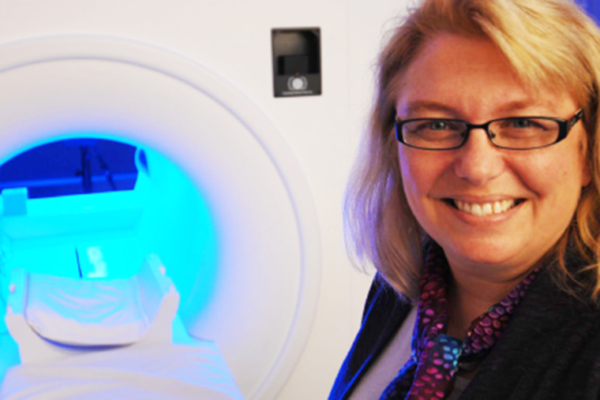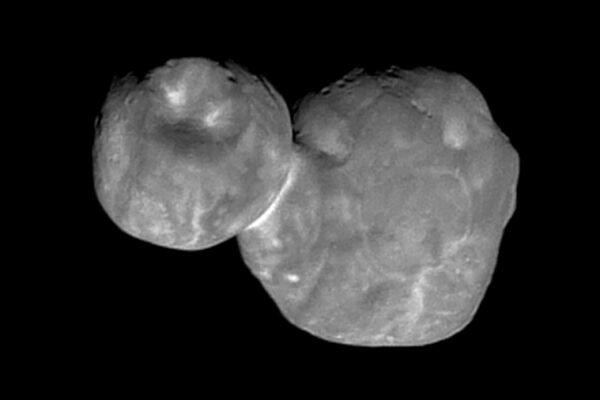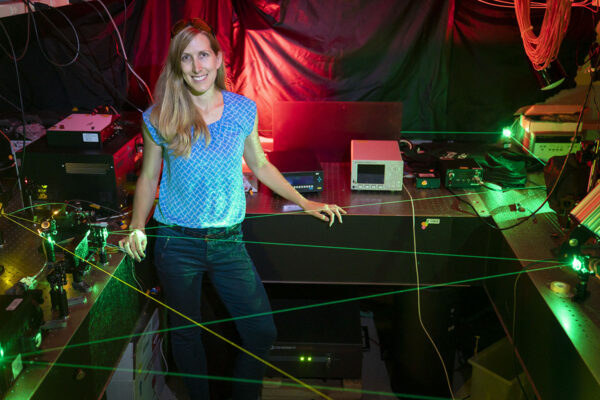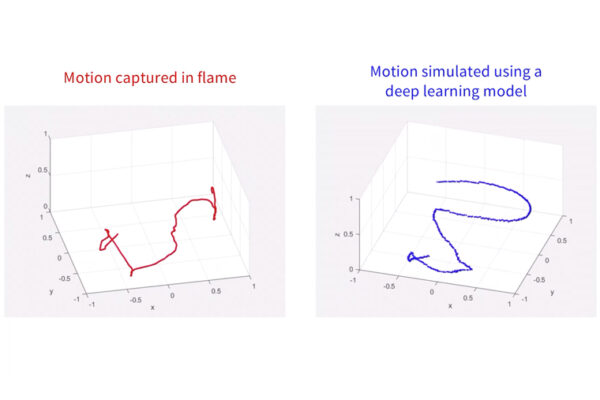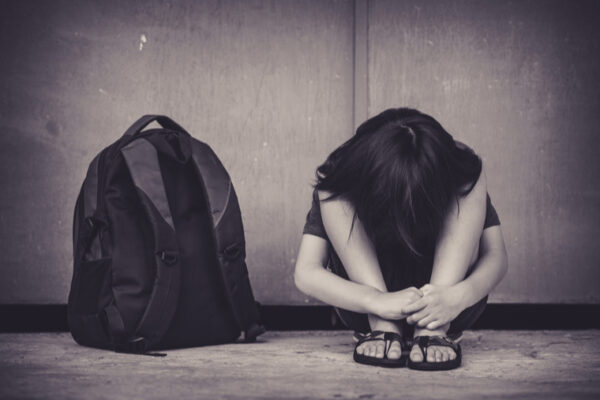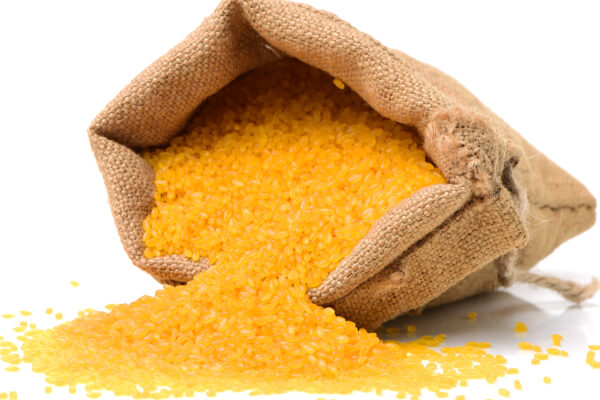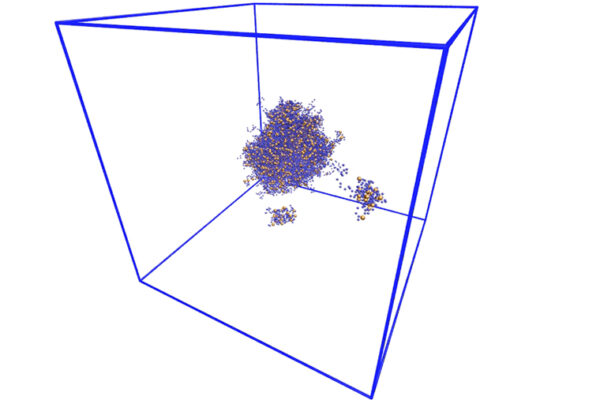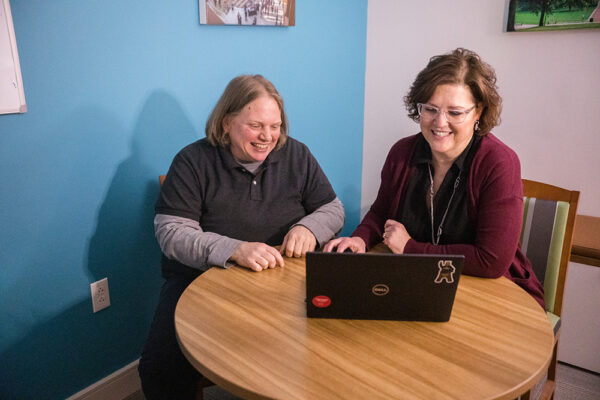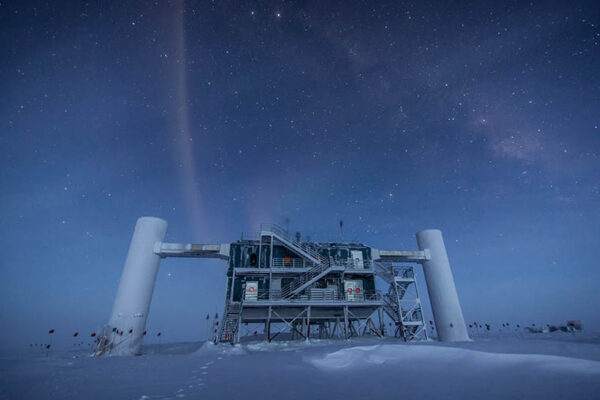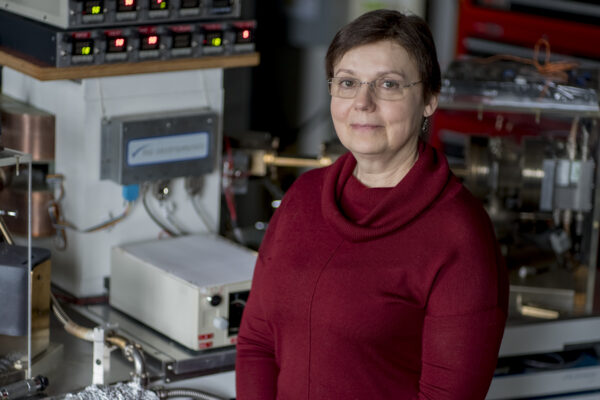Barch elected to head AAAS psychology section
Deanna Barch, professor and chair of psychological and brain sciences in Arts & Sciences and the Gregory B. Couch Professor of Psychiatry at the School of Medicine, was chosen as the American Association for the Advancement of Science’s chair-elect of its Section on Psychology. She will begin her role as chair in February 2021.
Arrokoth close-up reveals how planetary building blocks were constructed
William B. McKinnon, professor of earth and planetary sciences in Arts & Sciences at Washington University in St. Louis, led one of three new studies that together provide a far more complete picture of the composition and origin of Arrokoth. The new research published in Science points to the resolution of a longstanding scientific controversy about how such primitive planetary building blocks called planetesimals were formed.
Lighting the molecular world
Directly seeing the workings of our world at nano- and molecular scale has largely remained an impossible task, left to theory and working assumptions. WashU alumna Jennifer Dionne, BS ’03, has made it possible and won one of science’s most prestigious award.
Predicting chaos using aerosols and AI
Using aerosols as ground truth, researchers at the McKelvey School of Engineering at Washington University in St. Louis have developed a deep learning method that accurately simulates chaotic trajectories — from the spread of poisonous gas to the path of foraging animals.
Suicidal thoughts in 9- and 10-year-olds correlate to family dynamics
Research from Washington University in St. Louis shows a nontrivial rate of children as young as 9 and 10 years old are thinking about suicide. How their families interact — or don’t — may play a role.
No clear path for Golden Rice to reach consumers
Heralded as a genetically modified crop with the potential to save millions of lives, Golden Rice has just been approved as safe for human and animal consumption by regulators in the Philippines. But a new study by Glenn Davis Stone, professor of sociocultural anthropology and environmental studies in Arts & Sciences, finds that most families affected by Vitamin A deficiency can’t grow Golden Rice themselves, and most commercial farmers won’t grow it either.
Collaboration lets researchers ‘read’ proteins for new properties
A collaboration between the McKelvey School of Engineering and St. Jude Children’s Research Hospital uncovers the underlying rules that, when broken, contribute to neurodegenerative diseases such as ALS.
New partnership streamlines hiring process for LaunchCode grads
Training, and retaining, tech talent is essential to St. Louis’ continued economic growth. A new partnership between Washington University in St. Louis and the nonprofit organization LaunchCode makes the transition from apprentice to full-time employee at the university easier for LaunchCode graduates.
Ultra-high energy events key to study of ghost particles
Bhupal Dev, assistant professor of physics in Arts & Sciences at Washington University in St. Louis, proposes a new way to leverage data from ultra-high energy neutrinos from large neutrino telescopes such as the IceCube Neutrino Observatory in Antarctica.
What a meteorite is teaching us about space history
Presolar grains — tiny bits of solid interstellar material formed before the sun was born — are sometimes found in primitive meteorites. But a noble gas analysis from physicists in Arts & Sciences reveals evidence of presolar grains in part of a meteorite where they are not expected to be found.
Older Stories
